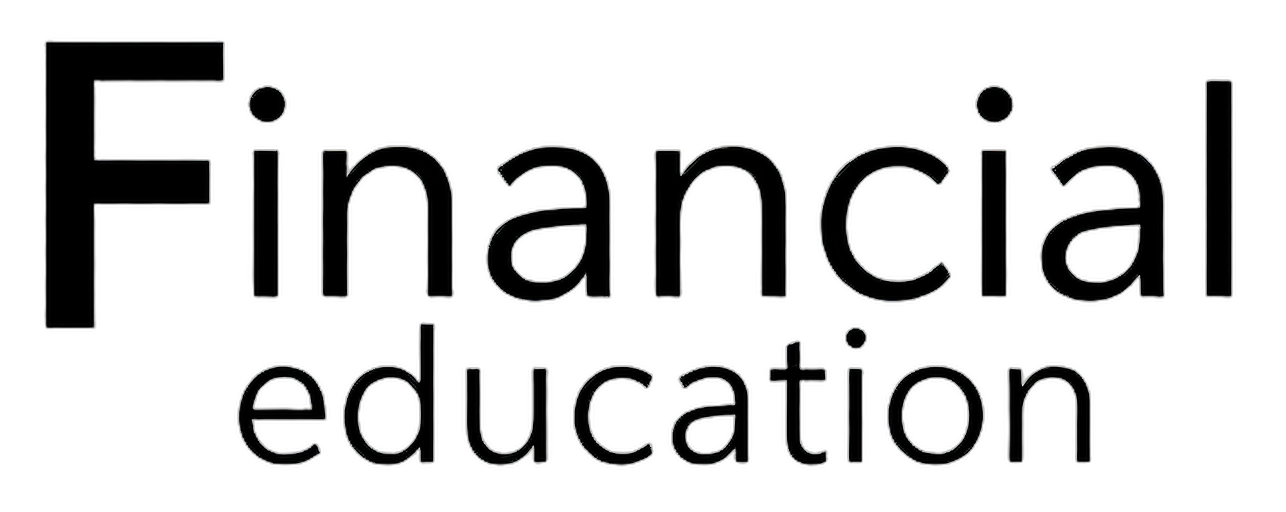Ever thought about what’s most important for a good budget?
Starting a budget boosts your money management skills. Many people don’t know how much money they spend each month. A budget is more than just tracking money; it’s about changing your spending habits for the better.
Knowing the main budget components is key to a strong budget framework. When you start making a budget, finding the first component of a budget is crucial. It sets the stage for financial stability and reaching your goals. This step is often missed, but it’s essential for planning your financial path.

Key Takeaways
- Understanding your financial inflows and outflows is crucial for effective budgeting.
- A well-structured budget enhances financial management skills.
- The first component of a budget is vital for building a solid financial foundation.
- Budgeting isn’t just tracking; it’s about improving financial habits.
- Identifying key budget components ensures long-term financial stability.
The Importance of creating a budget
Budgeting is more than just tracking money. It’s a key part of planning your budget. It helps you understand and control how you spend. By analyzing your budget, you can see where you need to make changes.
Budgeting gives you a clear picture of your money coming in versus going out. This helps you make smart financial choices. It also shows you unexpected expenses you might not have noticed before. Regular budget checks help you use your money wisely, covering both needs and wants.
Seeing the value in budgeting can make you more careful with your spending. This leads to better financial health. By making budgeting a habit, you’re on your way to reaching your financial goals and a secure future.
- Identify your income sources: Knowing where your money comes from is the first step in effective budget planning.
- Track all expenses: Both fixed and variable expenses should be monitored closely to understand your spending patterns.
- Conduct regular reviews: Periodic budget analysis ensures that you are on track with your financial goals and helps in making necessary adjustments.
Understanding Your Net Income
Knowing your net income is key in the budget breakdown. It’s what you get after taxes and other deductions. It shows how much you have for living costs and savings.
What is Net Income?
Your net income, or take-home pay, is what you have left after taxes and other costs. It’s important to know this to make a good budget. Your net income includes your salary, plus money from part-time jobs, investments, or freelancing.
Calculating Your Net Income
To find your net income, start with your gross income. This is your total earnings before any deductions. Then, subtract taxes, retirement contributions, healthcare costs, and other deductions. Here’s a simple way to do it:
| Component | Calculation |
|---|---|
| Gross Income | $5,000 |
| Federal Taxes | -$1,000 |
| State Taxes | -$200 |
| 401(k) Contributions | -$300 |
| Healthcare Premiums | -$150 |
| Net Income | $3,350 |
After calculating your net income, you can plan your budget with confidence. Knowing your net income helps you meet all your financial needs.
The First Component of a Budget Is: Net Income
Knowing your net income is key when you start a budget. It’s the money you have left after taxes and other deductions. This number helps you decide how much to spend in different areas, keeping your budget realistic.
Getting your net income right helps you avoid spending more than you have. This is important for budgeting, as it lets you plan for needs, savings, and fun. It helps you make choices based on what you really have.
When you make a budget, think about all your income sources. This includes your main job, side gigs, and any other money that comes in. This way, your net income figure is as accurate as it can be, giving you a strong base for your budget.
Identifying Your Fixed Expenses
Fixed expenses are monthly costs that don’t change, no matter how much you earn. They are important to include in your budget. This is because they take up a big part of your income and affect how flexible you are financially. Knowing what they are is essential for good budget planning.
Examples of Fixed Expenses
To manage your budget well, you need to know about common fixed expenses. These are often found in household budgets. Here are some examples:
- Mortgage or rent payments
- Car loans or lease payments
- Homeowners association (HOA) fees
- Insurance premiums (health, auto, home)
- Subscription services (streaming platforms, magazines)
- Property taxes
Impact of Fixed Expenses on Your Budget
Fixed expenses are crucial in your budget. They decide how much money you have left for other budget categories. Since you can’t change these costs, they limit how much you can spend on things you want. Managing these costs well helps you meet your financial needs and still have money for other things.
Flexible Expenses and How to Manage Them
Flexible expenses are key to good budget management. They change each month based on how much you use and your lifestyle. Examples include utilities, grocery bills, and phone fees. Unlike fixed costs, you can adjust these to save money.
To handle your flexible expenses well, start by tracking them. Know where your money goes and find ways to spend less. For example, lowering your thermostat can cut utility bills. Planning meals can also save on groceries.
Setting realistic limits on these expenses is crucial. If your grocery bills are too high, try meal planning. Check your phone plans to make sure you’re not overpaying.
Here’s a look at common flexible expenses and how to manage them:
| Expense Category | Example | Management Strategy |
|---|---|---|
| Utilities | Electricity, Water | Adjust thermostat, fix leaks |
| Grocery Bills | Food, Household Supplies | Meal planning, bulk buying |
| Telecommunication Fees | Internet, Phone plans | Review plans, reduce data usage |
Using these tips can help keep your monthly spending steady. By managing flexible expenses, you can make your budget work better for you. Small changes can lead to big savings in budget management.
Allocating for Discretionary Expenses
Managing your budget is more than just covering the basics. It’s also about making room for fun and personal growth. Discretionary spending is key in financial planning. It includes things like dining out, entertainment, and travel. Here, you’ll learn how to fit these expenses into your budget.
What are Discretionary Expenses?
Discretionary expenses are things you buy that aren’t necessary, like eating out or going to the movies. They’re different from fixed expenses like rent or bills. Knowing about these expenses helps you live a balanced and fun life.
How to Budget for Discretionary Spending
Start by figuring out your essential costs and savings goals. Then, see how much you can spend on discretionary items. This way, you can enjoy life without hurting your finances.
| Expense Type | Description | Budget Allocation Percentage |
|---|---|---|
| Fixed Expenses | Rent, utilities, loan payments | 50% |
| Savings | Emergency fund, retirement, investments | 20% |
| Discretionary Expenses | Dining out, entertainment, vacations | 30% |
Setting aside a certain percentage of your income for discretionary spending is smart. Remember, these expenses can change. So, it’s important to check and adjust your budget often. This keeps your finances in check while still letting you enjoy life.
Creating a Comprehensive Budget Plan
Creating a budget plan means organizing your income and expenses. It helps keep your finances stable. You need to understand different expenses and track your income accurately. This way, you can make smart financial choices.
Begin by listing your fixed expenses like rent, utilities, and insurance. Knowing these costs helps you plan better. Then, look at your flexible expenses, like groceries and entertainment, which change each month. Managing these well is crucial for a good budget.
Your budget should also include savings and debt repayment. Saving a part of your income is important for emergencies and future needs. Also, setting aside money for debt repayment helps reduce your financial burdens.
It’s important to regularly check and update your budget. Your financial situation can change due to income shifts, unexpected expenses, or new priorities. Keeping your budget current ensures it stays useful.
| Expense Category | Description | Monthly Amount |
|---|---|---|
| Fixed Expenses | Rent, Utilities, Insurance | $1,500 |
| Flexible Expenses | Groceries, Entertainment, Dining | $800 |
| Savings | Emergency Fund, Retirement | $500 |
| Debt Repayment | Credit Card, Student Loan | $400 |
By carefully planning and updating your budget, you secure your financial future. Stay true to your financial goals and adjust as necessary for ongoing success.
Monitoring and Adjusting Your Budget
Keeping an eye on your budget is key to managing your money well. With the right tools, you can stay in control and adjust as needed to meet your goals.
Tools and Resources for Budget Tracking
Digital tools and old-school methods can both help with budget tracking. Apps like Mint, YNAB, and Quicken offer great features for managing your budget. They automatically categorize and track your spending, giving you instant updates on your finances.
“Tracking your finances doesn’t have to be tedious. Technology simplifies budget tracking.”
If you like the traditional way, a physical ledger or spreadsheet works too. Just make sure to update your income and expenses regularly. This keeps your budget up to date.
Making Adjustments
Changing your budget is crucial when your income or expenses change. Regular checks can show where you might need to cut back or spend more.
- Evaluate Your Income: Make sure your budget matches your current earnings. Adjust for any changes.
- Review Your Expenses: Look for new or old expenses. Move money around to fit these changes.
- Set New Financial Goals: As your life changes, so might your financial goals. Update your budget to support these new dreams.
By keeping an eye on your budget and making changes as needed, you stay on track with your financial goals. Using the right tools and making adjustments regularly can lead to a secure financial future.
Conclusion
Building and keeping a budget is a journey of self-discovery and constant improvement. It starts with knowing your net income and figuring out your fixed and flexible costs. You also need to save for things you want but don’t need.
Every step in making a budget is key to a solid financial plan. This plan should match your goals and how you live.
Having a detailed budget lets you see where your money goes. It helps you make smart choices to get better financially. By keeping an eye on your budget and using the right tools, you can keep your financial plan working well.
Creating a budget is not just about tracking money. It’s about being proactive, using resources wisely, and being ready for changes. By following these steps and staying focused on your financial health, you can find lasting stability and peace of mind.
FAQ
What is the first component of a budget?
The first part of a budget is your net income. This is what you get after taxes, retirement, and health care are taken out.
Why is budgeting important?
Budgeting is key because it improves your money management. It helps you see where your money goes and promotes better spending habits. It’s a basic tool for planning your finances.
What is net income?
Net income is what you have left after taxes, retirement, and health care are deducted. It includes things like investments and part-time jobs.
How do I calculate my net income?
To find your net income, subtract all deductions from your gross income. This number is essential for making a good budget.
What are fixed expenses?
Fixed expenses are regular costs that don’t change much, like mortgages and car payments. They take up a big part of your income and affect how flexible you are with money.
How do fixed expenses impact my budget?
Fixed expenses set a base for your spending. They are the first things to include in your budget because they are always there every month.
What are flexible expenses?
Flexible expenses change from month to month, like bills and groceries. You can adjust these to fit your financial goals.
What are discretionary expenses?
Discretionary expenses are for things you want but don’t need, like eating out. You can cut back on these if you need to.
How do I budget for discretionary spending?
First, pay for essentials and save. Then, use some of what’s left for non-essential spending. This keeps your finances balanced.
What is a comprehensive budget plan?
A complete budget plan includes all income and expenses. It also sets aside money for savings and debt. Regularly check and update your plan to match your financial situation.
How do I monitor and adjust my budget?
Use apps or spreadsheets to track your money. Update your budget when your income or spending changes. This keeps you in control of your finances.

